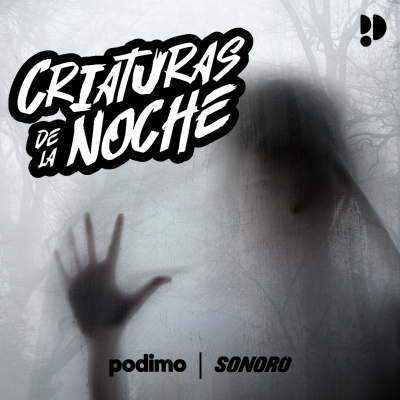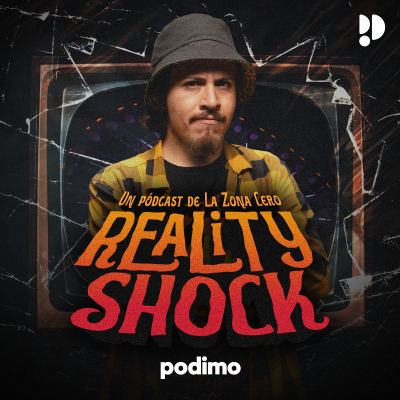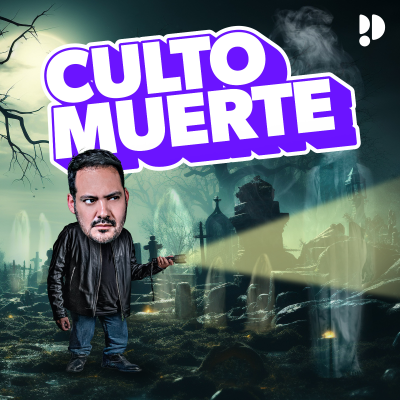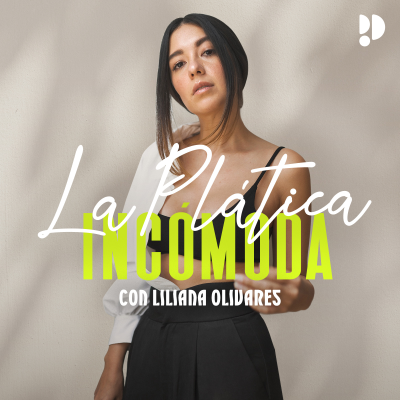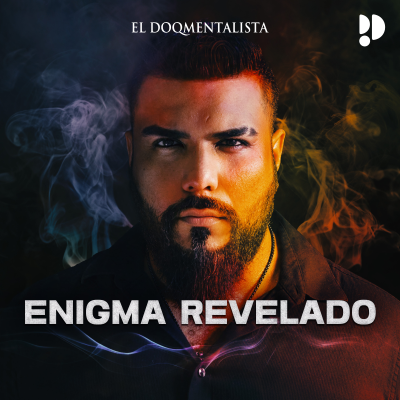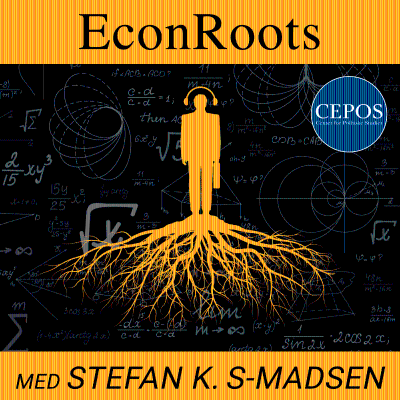
EconRoots
inglés
Historia y religión
Empieza 7 días de prueba
$99 / mes después de la prueba.Cancela cuando quieras.
- 20 horas de audiolibros al mes
- Podcasts solo en Podimo
- Podcast gratuitos
Acerca de EconRoots
EconRoots er et program om økonomisk teori og økonomisk tænkning. Det er både for dig der kender til økonomi, og for dig som bare er nysgerrig på hvor en af de mest betydningsfulde socialvidenskaber kommer fra og hvad den ønsker at fortælle os. Lyt med fra første sæson hvor vi gennemgår økonomiens teorihistorie og du vil møde betydningsfulde tænkere som Smith, Marx, Schumpeter, Hayek, Keynes og mange flere – En intellektuel nydelsestur der giver dig forståelsen for hvor moderne debatter om ulighed, vækst og tolerance kommer fra.
Todos los episodios
38 episodiosRoger Koppl: On to a groundbreaking growth theory, changing ideas and the role of experts
In this Econ Roots talk, Stefan meets up with Syracuse professor of Finance Roger Koppl. Roger has been a visiting faculty member in many fine institutions including Denmarks own Copenhagen Business School Professor Koppl is a past president of the Society for the Development of Austrian Economics and a former editor of Advances in Austrian Economics. Koppl’s research interests include the economic theory of experts, the theory of economic growth, complexity theory, and the production and distribution of knowledge in society. His work has been featured in many popular news outlets.
Mieke Meurs: On teaching heterodox and feminist economics
In today’s episode we challenge mainstream economics from some heterodox perspectives, particularly feminist economics. Professor Mieke particularly critiques neoclassical price theory, the interplay between policy-making and the public, and how we should teach these aspects. We go on to talk about the issue of predicting of cost in extreme cases, such as climate change, as well as whether GDP captures welfare. We end the inspiring talk on issues related to family choice and cultural preferences. References: Anderson, E. (2012). Epistemic justice as a virtue of social institutions. Social Epistemology, 26(2), 163-173. https://doi.org/10.1080/02691728.2011.652211 Gornick, J. C., Meyers, M. K., Heymann, J., & Beem, C. (2004). Supporting a dual-earner/dual-carer society: Policy lessons from abroad. A Democracy that Works: The Public Dimensions of the Work and Family Debate. The value of everything: Making and taking in the global economy. (2018). Mariana Mazzucato. https://www.sciencedirect.com/book/9780241188828/the-value-of-everything The entrepreneurial state: Debunking public vs. private sector myths. (2013). Mariana Mazzucato. https://www.sciencedirect.com/book/9780857282521/the-entrepreneurial-state The value of everything: Making and taking in the global economy. (2018). Mariana Mazzucato. https://www.sciencedirect.com/book/9780241188828/the-value-of-everything The entrepreneurial state: Debunking public vs. private sector myths. (2013). Mariana Mazzucato. https://www.sciencedirect.com/book/9780857282521/the-entrepreneurial-state
Michael Douma: On Economic History and the slave owning Dutch New Yorkers
What happens when two old friends meet at a conference and one of the them is an economic historian and the other is an economist who loves history? Well, they start to talk shop and you are invited to listen along. Today’s conversation with Michael Douma, Associate Research Professor and Director of Georgetown Institute for the Study of Markets and Ethics, touches on a wide range of subjects of interest to our listeners, from the relevance of economic history to slave-owning Dutch New Yorkers. References: Burke, P. (n.d.). History and social theory. Douma, M. J. (2018). Creative historical thinking. Routledge. Douma, M. J. (2020). The liberal approach to the past. Cato Institute. Douma, M. J., & Magness, P. W. (2017). What is classical liberal history?. Rowman & Littlefield. The slow death of slavery in Dutch New York. (2024). Cambridge University Press.
US Healthcare: A dismal state? with Michael Cannon.
Want to reveal partisanship? Try mentioning US Healthcare. Is there a more debated complex subject where actual knowledge is such a scarcity? Helping us make sense of it all, we are joined by Michael F. Cannon, who is the Cato Institute’s director of health policy studies. His scholarship spans public health; regulation of providers and drugs; employer-sponsored and other private health insurance; federal programs like Medicare and Medicaid, medical malpractice litigation; administrative law, and finally, international health systems. Cannon is “an influential health-care wonk,” according to the Washington Post, and Washingtonian magazine named Cannon one of Washington, DC’s “Most Influential People” in the last four years. He has appeared in too numerous to mention international news outlets. We are also joined by Karsten Bo Larsen, head of research at CEPOS, to offer some Danish comparisons. Recorded in June at CEPOS, Copenhagen. References: Cannon, M. F. (2023). Recovery: A Guide to Reforming the US Health Sector. Cato Institute. Cannon, M. F., & Tanner, M. D. (2007). Healthy competition: What's holding back health care and
EconRoots Talk - Christopher Coyne on Peace
What is peace? Many are so blessed by it, we can take it for granted. However, peace is as, if not more, complex than conflict and war. In this episode, we talk with one of the most prominent peace-economists;GMU’s Christopher Coyne. What does peace do? What does it look like? Is it even a binary construct? After all, is a boxing match not an illustration of peaceful violence? Once you open up the construct of peace a whole world of intellectual inquiry follows, and here Professor Coyne is likely your best guide. References: Coyne, Christopher J. "After War: The Political Economy of Exporting Democracy." Stanford University Press, 2008. Coyne, Christopher J. "Coyne - in search of monsters to destroy." Independent Review, vol. 13, no. 3, 2009, pp. 325-330. Coyne, Christopher J. "Coyne - Perfecting Tyranny: Foreign Intervention and the Loss of Liberty at Home." The Review of Austrian Economics, vol. 20, no. 1, 2007, pp. 59-63.
Elige tu suscripción
Premium
20 horas de audiolibros
Podcasts solo en Podimo
Podcast gratuitos
Cancela cuando quieras
Empieza 7 días de prueba
Después $99 / mes
Empieza 7 días de prueba. $99 / mes después de la prueba. Cancela cuando quieras.






